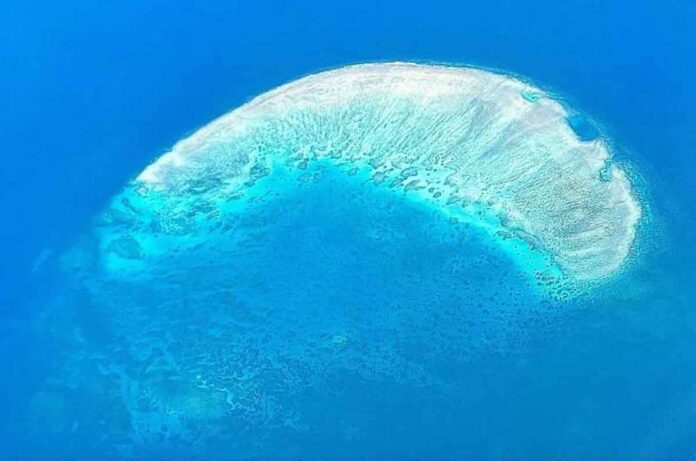According to a study that was published in the journal Earth’s Future, climate models are unreliable when it comes to predicting the harm that tropical cyclones will cause to delicate coral reefs.
Conservationists are interested in using the models to identify the vulnerability of reef communities to storm damage and to focus conservation and protection efforts on those coral reefs that are less likely to be impacted by climate change because it is anticipated that tropical cyclones will intensify with climate change.
But a group of scientists from the Australian Institute for Marine Science, the University of Leeds in the UK, and the Commonwealth Scientific and Industrial Research Organization (CISRO) are warning against using the climate models, claiming they are not yet trustworthy enough to predict which reefs will be most at risk from cyclone damage.
Moving weather systems called cyclones produce stormy conditions like heavy rainfall, waves, and strong circular winds. The area closest to a cyclone’s eye, which typically has a diameter of about 50 km, is where the most dangerous weather can be found.
Coral reefs can be destroyed by powerful waves, but intense cyclones have the most devastating effects when they pass by coral reef ecosystems.
It can take decades or centuries for coral communities to recover from the harm caused by extreme weather events, according to Dr.MarjiPuotinen, a spatial and ecological data scientist at the Australian Institute of Marine Science and co-author of the study. Therefore, it is crucial that conservationists focus their limited resources on those reefs that are more likely to survive climate change.
But at the moment, we are advising caution when predicting the damage that could be done to a coral reef from future cyclones. “To do that, they need to assess the vulnerability of coral reefs in the face of more extreme weather patterns.”

The research team examined how well the climate models represented recent extreme weather events to evaluate the models’ accuracy. They discovered that the models did not adequately represent all of the characteristics of cyclones that cause waves that can harm coral reefs.
Climate models predicted that the average cyclone will be more intense on a global scale as a result of climate change with a medium to high degree of confidence. The models were less certain about how tropical cyclone wave damage would affect coral reefs, though.
For instance, they might not track or pass close to the coral reefs even though the cyclone may be more intense.
The study’s lead author, doctoral candidate Adele Dixon at the University of Leeds, claims that it “has identified the benefits and drawbacks of using climate models in coral reef conservation work.”
“The models are accurate in predicting that, on a global scale, cyclones will most likely become more intense in the future due to climate change, but they are less accurate in predicting how those cyclones will affect individual coral reefs—that is the result of more localized conditions such as the pounding of waves.”
The study was published by the researchers in Earth’s Future.
The scientists urge more study to clarify how climate change affects tropical cyclone characteristics that affect coral reef damage.

